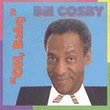| All Artists: Carl Maria von Weber, Herbert Blomstedt, Dresden Staatskapelle, Peter Rösel Title: Weber: Piano Concertos/Konzertstuck in Fm Members Wishing: 0 Total Copies: 0 Label: Berlin Classics Release Date: 12/7/1993 Genre: Classical Styles: Forms & Genres, Concertos, Instruments, Keyboard, Symphonies Number of Discs: 1 SwapaCD Credits: 1 UPC: 782124105822 |
Search - Carl Maria von Weber, Herbert Blomstedt, Dresden Staatskapelle :: Weber: Piano Concertos/Konzertstuck in Fm
 | Carl Maria von Weber, Herbert Blomstedt, Dresden Staatskapelle Weber: Piano Concertos/Konzertstuck in Fm Genre: Classical
|
Larger Image |
CD DetailsSimilar CDs
|
CD ReviewsURGENTLY VITAL WEBER Melvyn M. Sobel | Freeport (Long Island), New York | 06/20/2003 (5 out of 5 stars) "Carl Maria von Weber [1786-1826], that chimerical showman, prescient pianist and Romantic era sojourner, would have, I'm sure, heartily praised these performances for their spirit, intuitive lyricism and burnished glow. Rarely have I heard the two piano concertos sound more emotionally involving--- and less hackneyed. Opening movements sparkle, as they should, yet beneath the clever exteriors, pianist Peter Rosel exposes Weber's hidden melancholy vein. The revelation is surprisingly moving, and such unexpected turns frequent these wonderful interpretations. It follows, naturally, that the slow movements would be no less inspired. They are, indeed, simply beautiful, unforced, caressing--- the interplay between pianist and orchestra, mesmerizing. Thus, when the attractive, buoyant finales arrive, the contrast is irrepressibly spontaneous. No less can be said for Weber's imaginative and moody Konzertstuck in F minor, where contrast and shading, subtlety and virtuosity are the key elements in this seventeen minute phantasmagoria. Throughout, pianist Rosel's simpatico is above reproach, his grasp on Weber, a model. The Dresden Staatskapelle, under the fine leadership of Herbert Blomstedt, is thoroughly attuned. The recording, faithfully clear and warm, enhanced by the prominence of the piano, gives an already superb set of performances that much more definition and authority. [Running time: 60:59]" Padded Sound and Pokey Tempos Corn Soup | 04/16/2004 (3 out of 5 stars) "This is a nice sounding disk. The orchestra is lush sounding and a little overly padded. No surprises here, everything is pretty much done by the book. The main problem is that the tempi lag miserably. The pianist, Peter Rosel, plays the cascading figurations that open the First Concerto's Rondo so slowly that he manages to make the piece sound like a Czerny exercise. The perpetuum mobile figuration is one that Weber used famously (and often), but in both rondos, the slow tempi rob the music of much of its joy. It just doesn't sound the way it is supposed to when played that slowly. He seems a lot more comfortable in the slow movements where lingering over the notes points up Weber's operatic sentimentality beautifully."
|

 Track Listings (7) - Disc #1
Track Listings (7) - Disc #1
